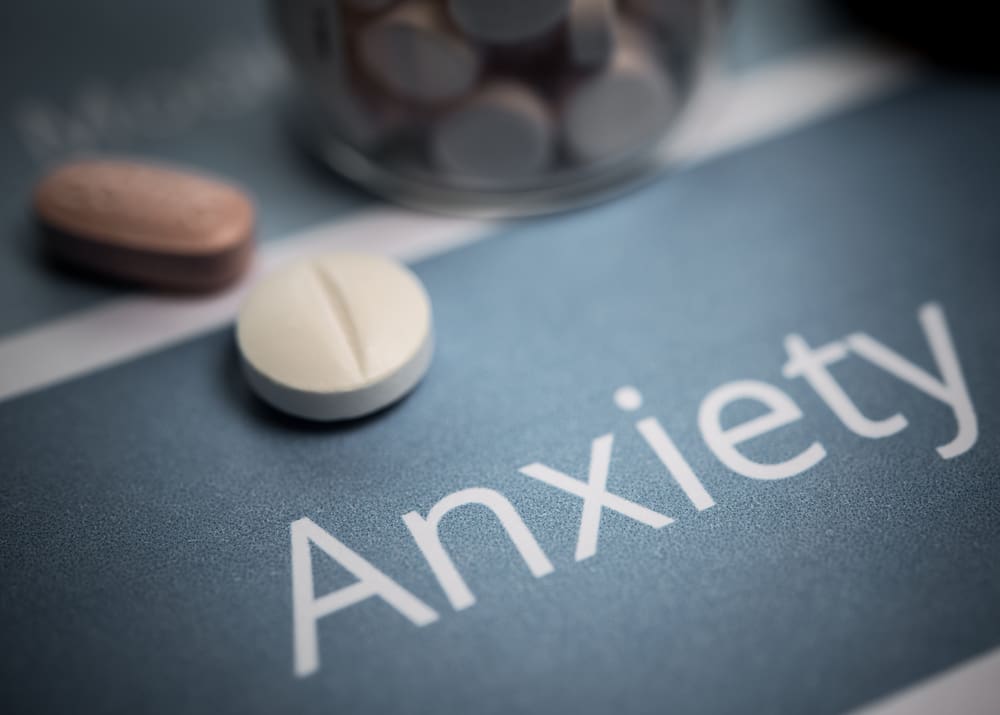Among the various treatments for anxiety disorders, anti-anxiety meds elicit the most curiosity. How do they work? Which anxiety medications should I take? And how can I get them? People with anxiety disorders often ask these questions, so we’ve compiled these answers as a resource for people living with this mental illness.
If you’d like to learn more about anti-anxiety medications, then keep reading for real-world advice that can help you.
Contents
How Do Anti-Anxiety Meds Work?

If you’ve done any previous research into anti-anxiety meds, you may have noticed that many of them are also used to treat depression. This relates to how these medications work. Whether a mental health professional wants to treat depression or anxiety, they’ll likely prescribe serotonin and norepinephrine reuptake inhibitors (SNRIs) or selective serotonin reuptake inhibitors (SSRIs). For context, both serotonin and norepinephrine are neurotransmitters that affect things like attention span, mood, and the ability to sleep. Because neurotransmitters are messengers of the brain, sending signals to and from various parts of the body, you can think of serotonin and norepinephrine as chemicals that send positive messages throughout the brain.
These depression and anxiety medications stop the reuptake of serotonin in your brain, which, put simply, leaves more of the chemicals available for your brain to use. Because serotonin creates a pleasure response, this often mitigates depression and anxiety symptoms.
However, while SNRIs and SSRIs are among the most common anti-anxiety meds, there are several alternatives. Doctors commonly prescribe Tricyclic antidepressants (TCAs) as alternatives to treat depression and anxiety. But unlike SNRIs, TCAs do not prevent neurotransmitter reuptake. Instead, they prevent neurotransmitters from binding with receptors on the nerves. Without the ability to bind to a receptor, serotonin and norepinephrine collect in the space between nerve cells. This increases the overall amount of neurotransmitters, which can make the symptoms of anxiety disorders more manageable.
While these medications help treat chronic anxiety, others may suffer from short-term, event-related anxiety, such as going on a plane or giving a presentation. For cases such as these, doctors may treat anxiety with beta blockers, which they would normally prescribe to treat issues like high blood pressure. However, beta blockers have the ability to stop the physical symptoms of anxiety, such as increased heart rate, shallow breathing, and panic attacks.
As you can see, different anti-anxiety meds work in different ways for different individuals. Now, let’s take a closer look at the specific anxiety medications that you could take.
What Anti-Anxiety Medications Should I Take?
As we learned in the previous section, anxiety medications have a lot of variety. For that reason, you should consult with a health care professional to find the right medication for you. Your reaction to anti-anxiety meds will depend largely on your medical history and your brain chemistry. That’s why it’s essential that you meet with a qualified health care provider to ensure that you receive the right prescription.
With that said, let’s take a look at what anti-anxiety medications could work for you.
SNRIs
- Duloxetine (Cymbalta)
- Venlafaxine (Effexor)
- Desvenlafaxine ER (Khedezla)
- Desvenlafaxine (Pristiq)
- Levomilnacipran (Fetzima)
Doctors typically prescribed SNRIs to treat chronic anxiety, such as in generalized anxiety disorder. In some cases, SNRIs can come with side effects that include dizziness, weight gain, and, in some cases, increased anxiety. For this reason, you should work closely with a mental health professional to ensure that your anti-anxiety meds help rather than harm you.
SSRIs
- Citalopram (Celexa)
- Escitalopram (Lexapro)
- Fluvoxamine (Luvox)
- Paroxetine (Paxil)
- Sertaline (Zoloft)
Similar to SNRIs, physicians commonly prescribe SSRIs to treat long-term anxiety disorders. For some individuals, SSRIs may cause nausea, drowsiness, or issues with sexual function. While this does not happen to all or even most people who take these anti-anxiety meds, knowing the potential side effects is a key part of receiving treatment.
TCAs
- Asamoxapine (Asendin)
- Maprotiline (Ludiomil)
- Mirtazapine (Remeron)
TCAs may be prescribed for individuals who did not respond well to SSRIs or SNRIs or whose family history indicates that they may not respond well to alternatives. Side effects of TCAs may include dry mouth, low blood pressure, and blurred vision. Experiencing any of these side effects is a clear indicator that you should discuss your medication with your prescribing doctor immediately.
Beta Blockers
- Propranolol (Inderal)
- Atenolol (Tenormin)
The two above beta blockers are most commonly prescribed to treat short-term anxiety. Because these drugs work by reducing the physical symptoms of anxiety rather than the psychological causes, they are notably different from the other anti-anxiety meds on this list. Common side effects of beta blockers include headaches, fatigue, and dizziness.
How Can I Get Anti-Anxiety Meds?


While speaking to a physician is one way to get anti-anxiety medication, you should know that medication is just one part of a mental health treatment plan. Anti-anxiety meds can help, but you should supplement that care with rigorous individual programming, group therapy, and other mental health treatment options. In order to fully address your mental health needs, you should work with a team of mental health professionals to find a treatment program that works for you.
At Port St. Lucie Hospital, all of our new patients undergo medication evaluation and management, whether they’re enrolling in our adult mental health program, our dual diagnosis program, or any of our other behavioral health programs. In this step of mental health treatment, patients meet with a physician to discuss their current medications and how they could be affect their anxiety.
As you saw above, when a patient receives the wrong anxiety medication, it can actually worsen their symptoms. For that reason, our care team will carefully assess your medications to protect your mental health. From there, they will evaluate your medical history, your mental health, and your treatment goals to determine what, if any, anti-anxiety meds can help you.
Do you have questions about how we help people with anxiety disorders? Call our admissions specialists at (772) 238-7734, or fill out our digital contact form. Finding the right medication for anxiety can be a challenge, but we’re prepared to help you through every step of your mental health recovery.



























